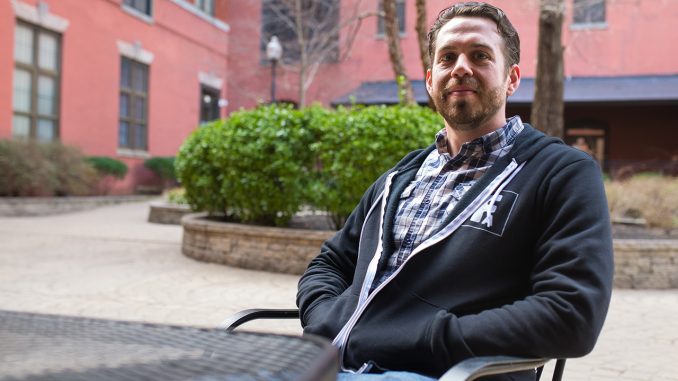
Starting in April, the College of Public Health will offer Narcan training to all faculty and students to help reduce the number of overdose deaths in the city.
The training comes after Temple University’s Task Force on Opioid and Related Drug Addiction and Recovery Support submitted a set of recommendations to President Richard Englert and Provost JoAnne Epps in December.
“Anything we can do to help save lives, especially while facing a public health epidemic, we should encourage and support any efforts,” said Kate Gallagher, the director of CPH’s Office for Clinical Practice and Field Education, who is hosting the training, alongside Prevention Point Philadelphia, a nonprofit harm reduction and health services organization.
It was imperative for CPH to expand its Narcan training beyond public health students, which the school began offering in April 2018, she said.
Prevention Point’s education and community outreach coordinator will teach attendees how to recognize the signs of an overdose and how to administer Narcan, an overdose reversal drug that blocks the effects of opioids on the brain and body.
The first training session will take place on April 9, and those interested can join an online waitlist for the class on the CPH website.
The university’s opioid task force supports the narcan trainings and, in official recommendations to the university, the hiring of an employee to connect students to others in recovery. Another was to implement recovery housing.
These are all services that students in recovery and recovery advocates believe would have impacted their time at Temple.
Bob Lamb, former president and founder of the Temple Collegiate Recovery Program, said having a dedicated staff person is a key element to forming a strong community that would support recovery efforts on campus. The Temple Collegiate Recovery Program is a student organization that provides a network of students in recovery, where they can connect with and support each other.
“Identifying a substance use disorder is difficult for a student and other involved parties, whether that’s the family, faculty and staff,” Lamb said. “Someone that’s well-versed in those areas is key to having an effective program, especially when navigating transitions that may need to take place in the academic world.”
Lamb, a 2018 master’s of public health alumnus, attended a few of the task force’s meetings while at Temple, he said. He applied for a position to lead a recovery program but was not hired by the university. Since graduating, Lamb maintains contact with Temple Collegiate Recovery Program members to ensure the program’s weekly meetings are still running.
“Anything that allows students to further expand their education is beneficial,” Lamb said. “I entered Temple’s program with a couple of years in recovery and have nothing but great things to say about my experience.”
Once the university hires a professional to lead recovery efforts, the possibility of implementing recovery housing on campus is more attainable, members of the task force told The Temple News last week.
George Basile, a 2018 political science alumnus and former junior class representative of Temple Student Government’s Parliament, originally proposed a resolution in 2017 for the university to establish housing for students in recovery.
“Considering Temple University is located a few miles from the epicenter of the opioid epidemic, substance use disorder affects us all,” Basile said. “…It’s on our university and other institutions of higher education to take the mantle in assisting our students’ needs and that includes addressing substance use disorder in the strongest terms possible.”
If the university does decide to move forward with recovery housing, Basile said, officials should research how recovery facilities function at other universities, like Drexel and Rutgers University.
Alex Tillery, a senior legal studies major and president of the Temple Collegiate Recovery Program, said he lived in a recovery house in South Philadelphia around the time he began studying at Temple.
“If Temple offered that service, I would have 100 percent taken them up on that offer,” Tillery said. “In my experience, it was great to be a part of a healthy environment where people are trying to better themselves.”


Be the first to comment